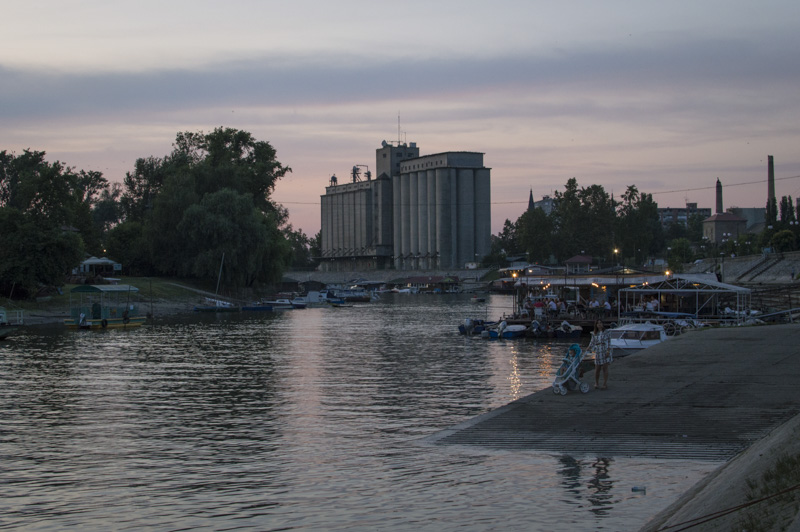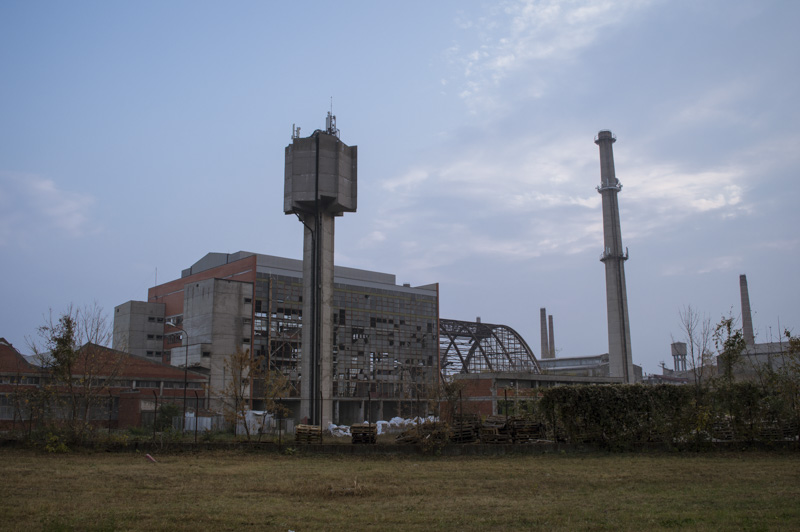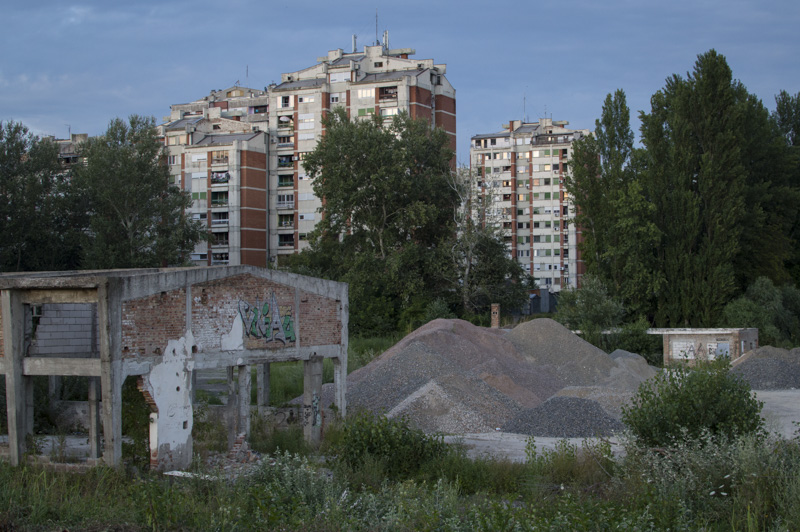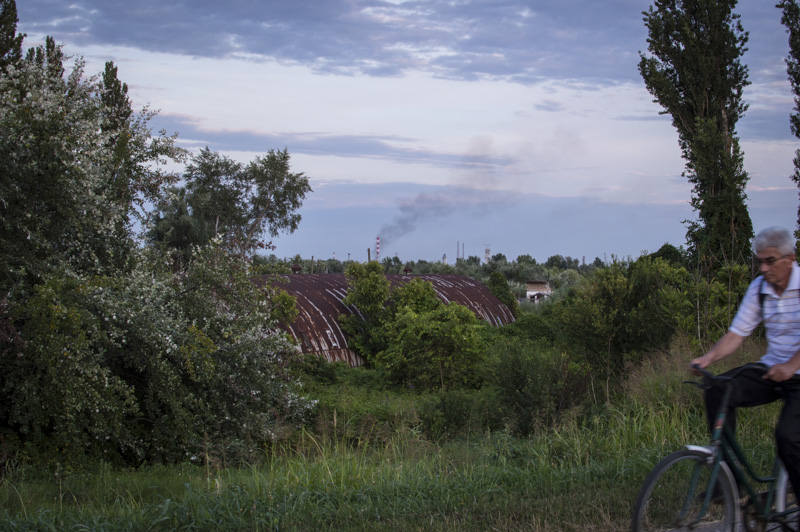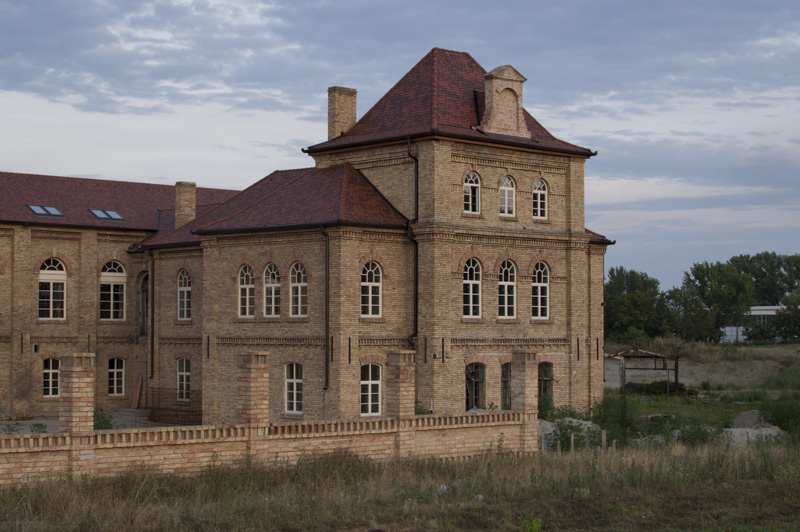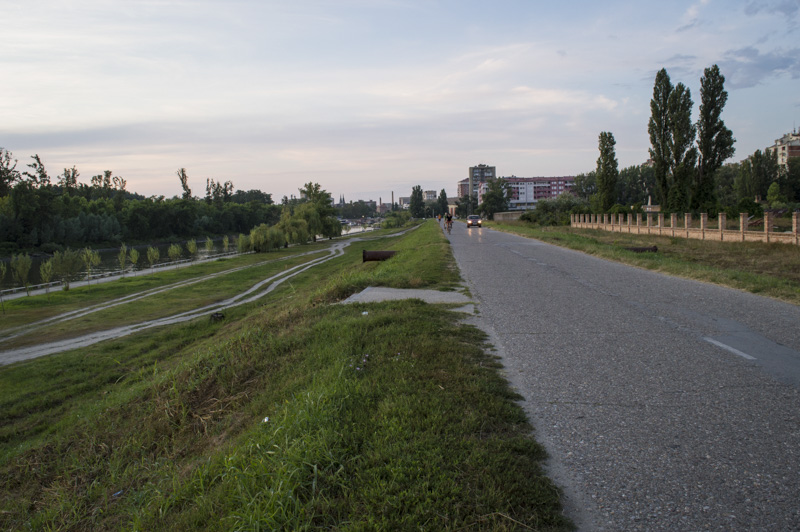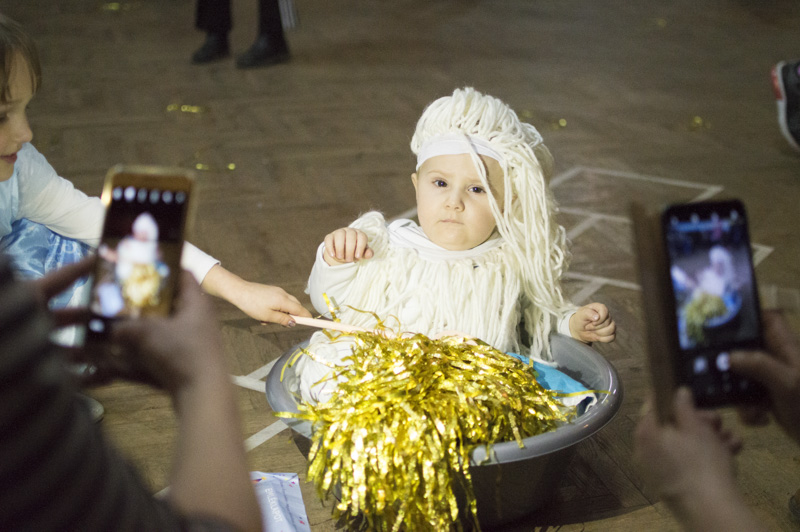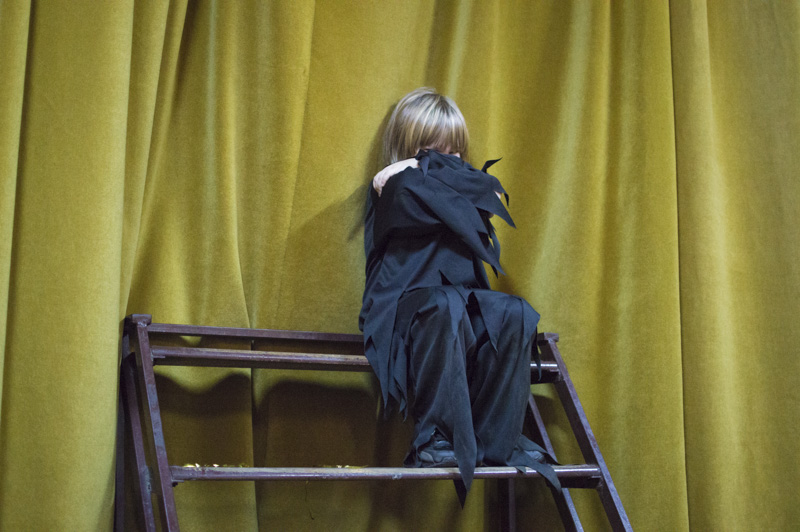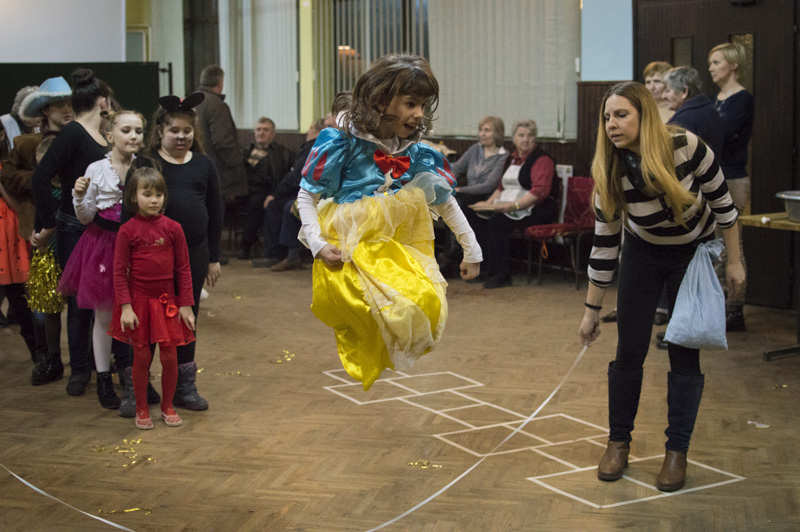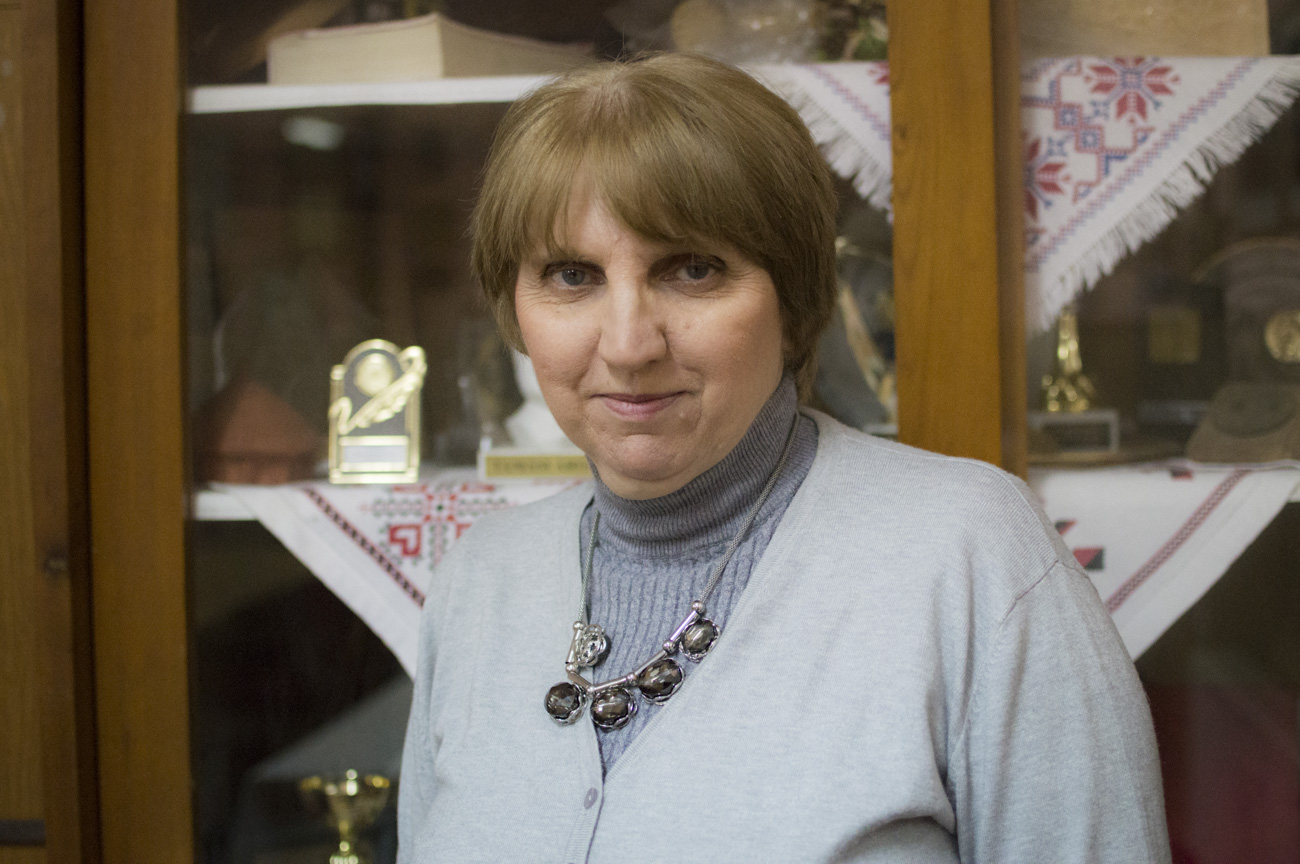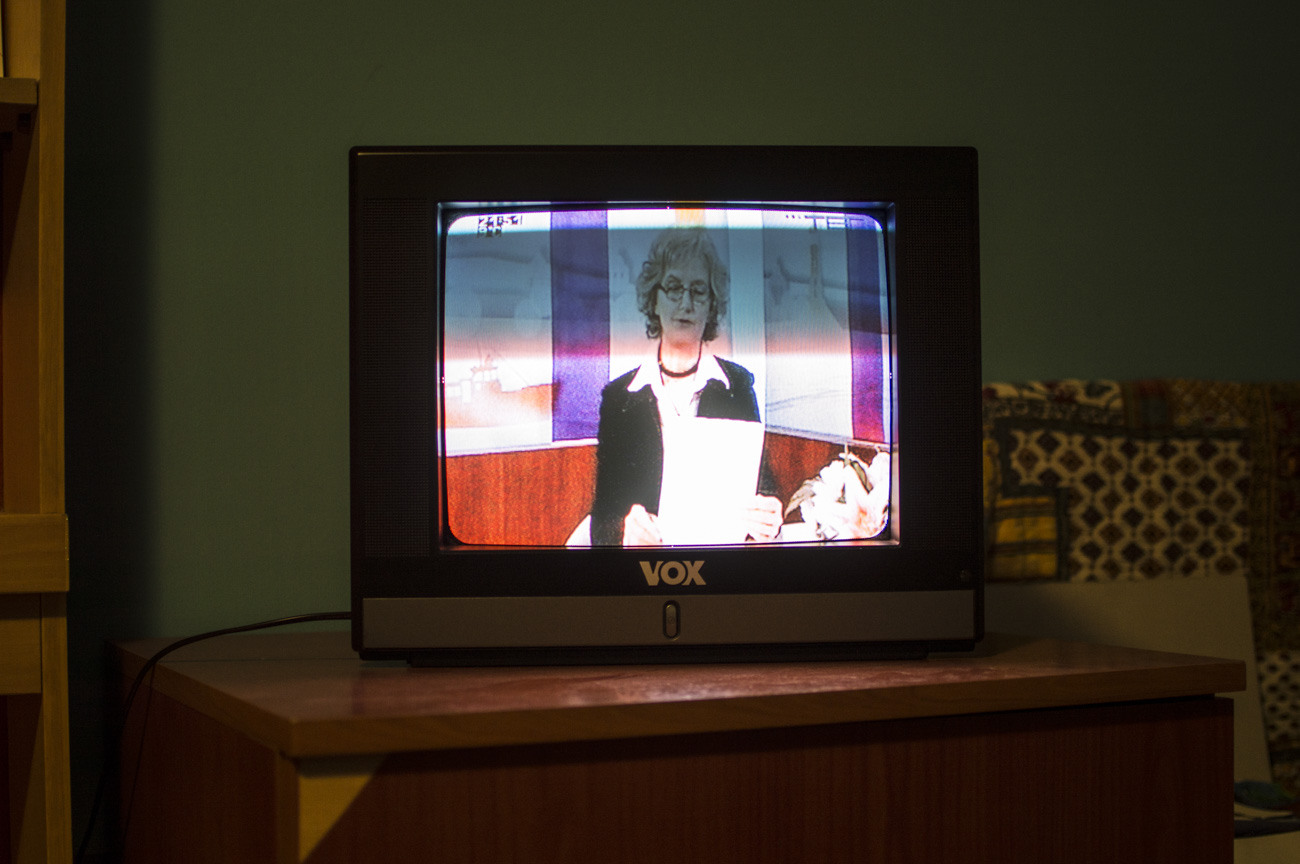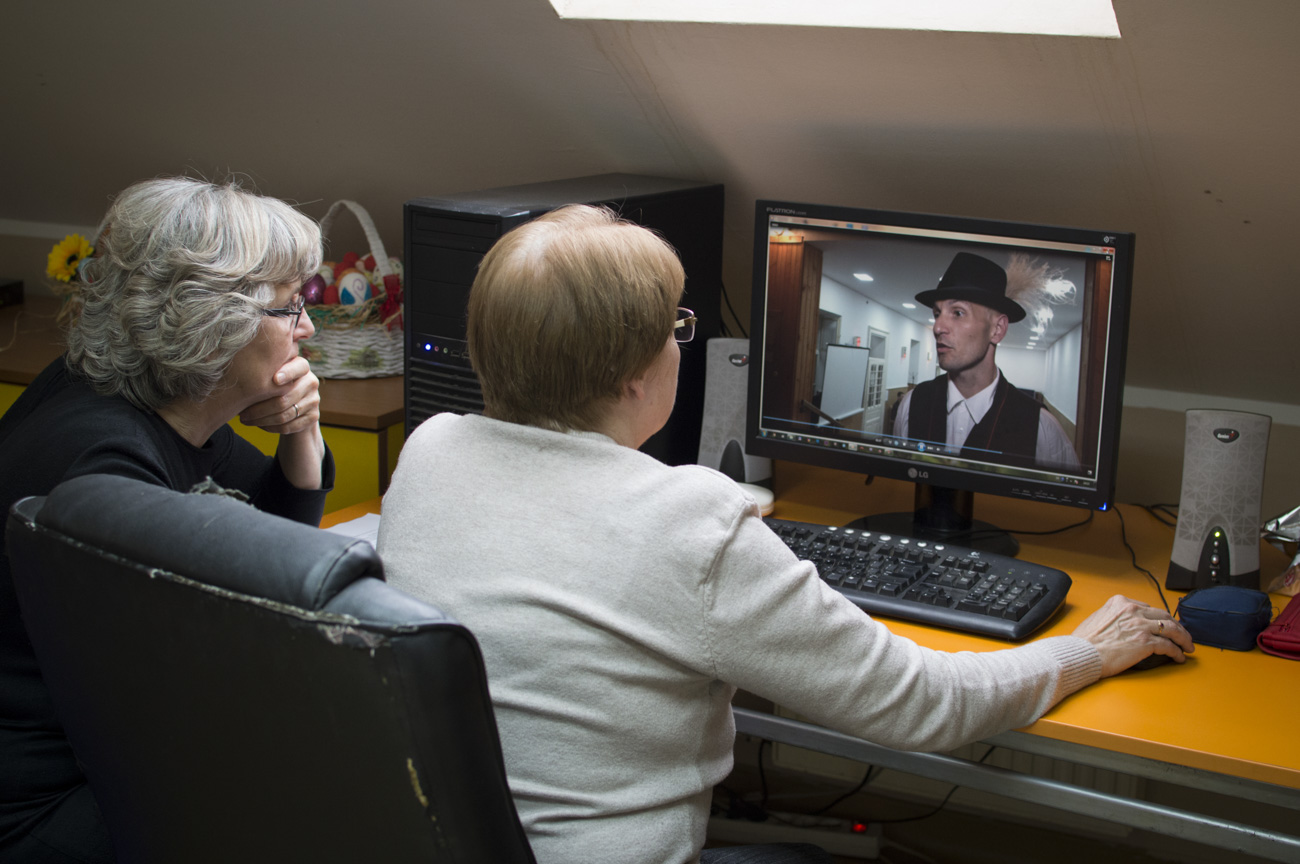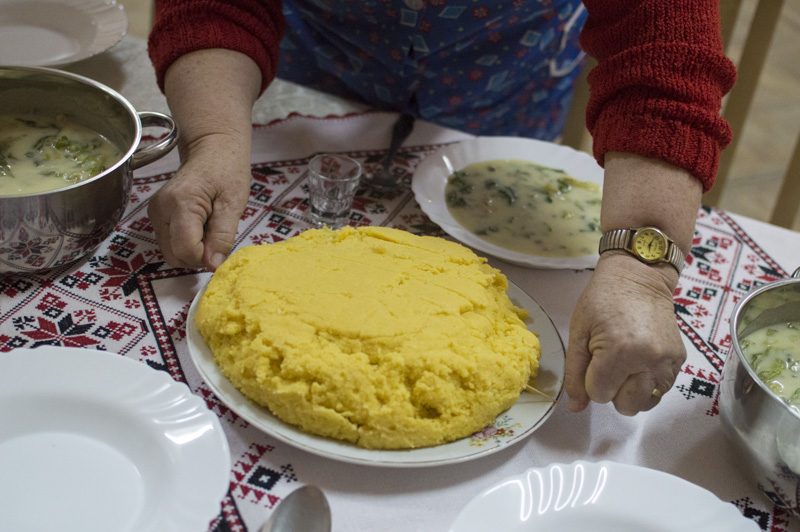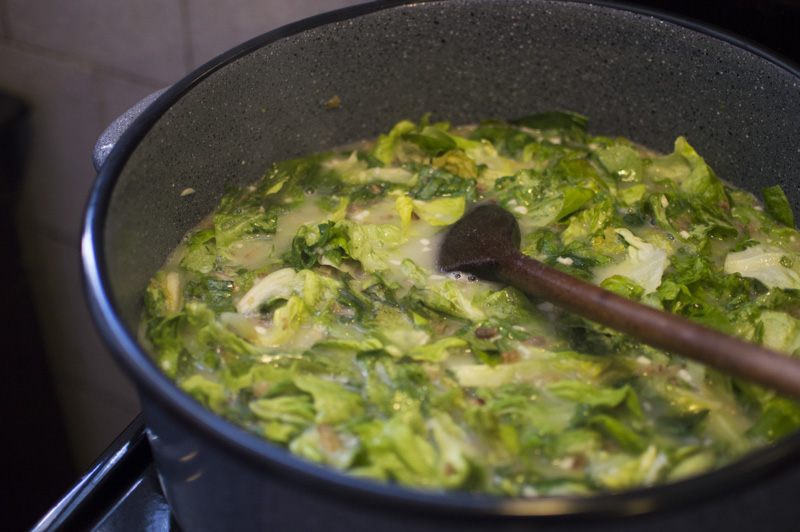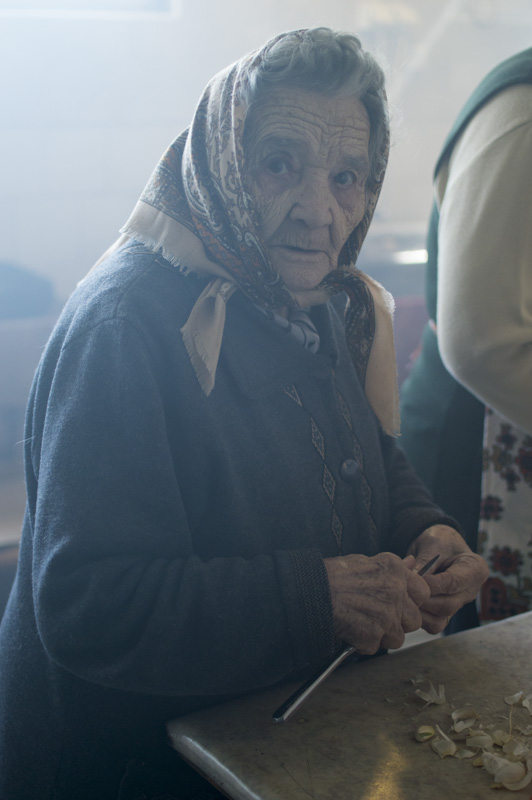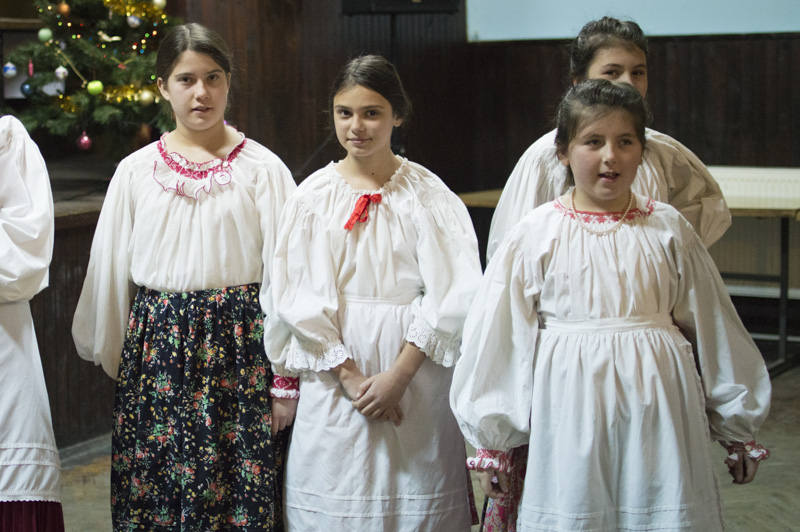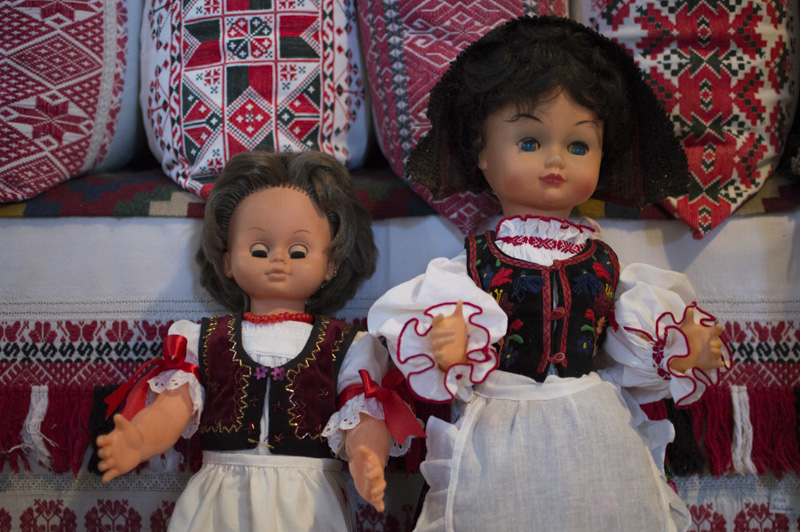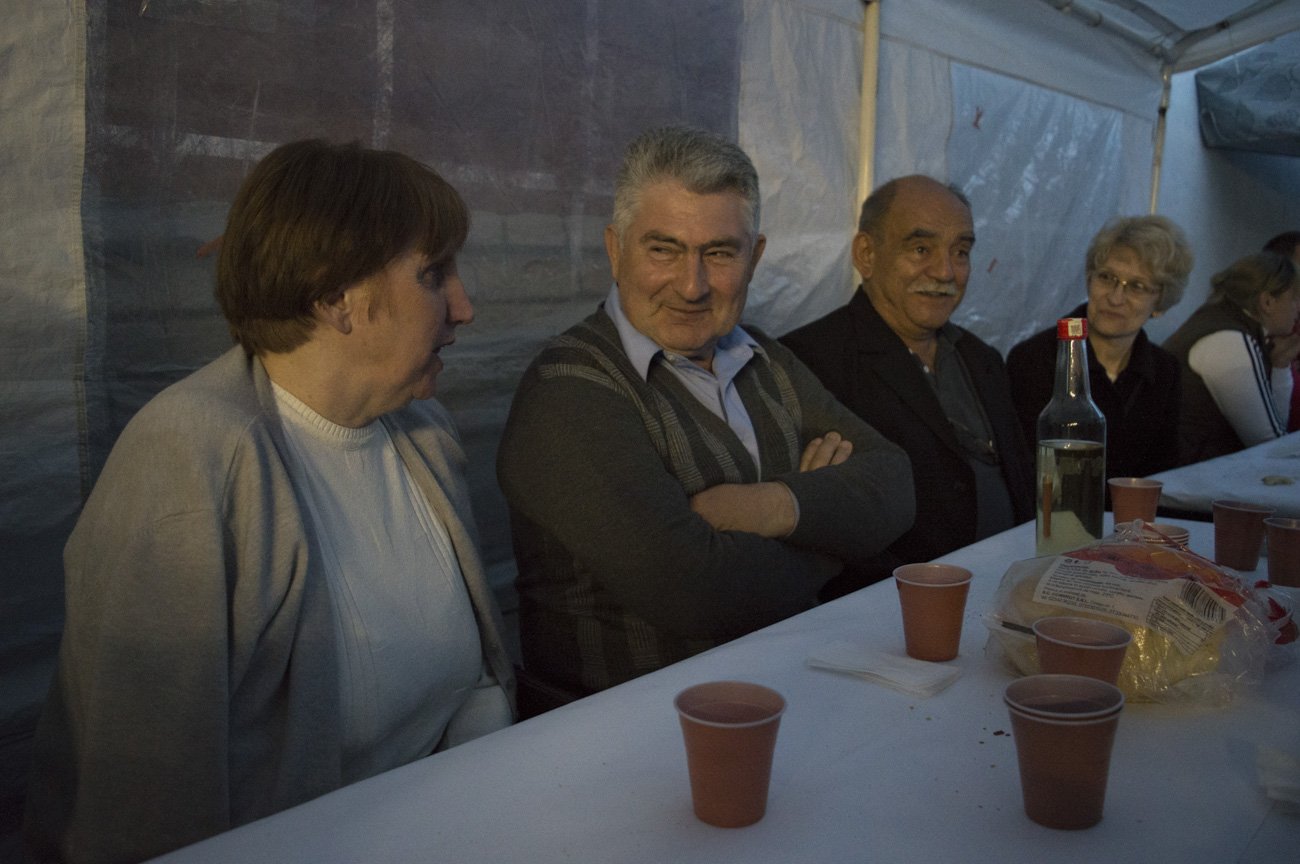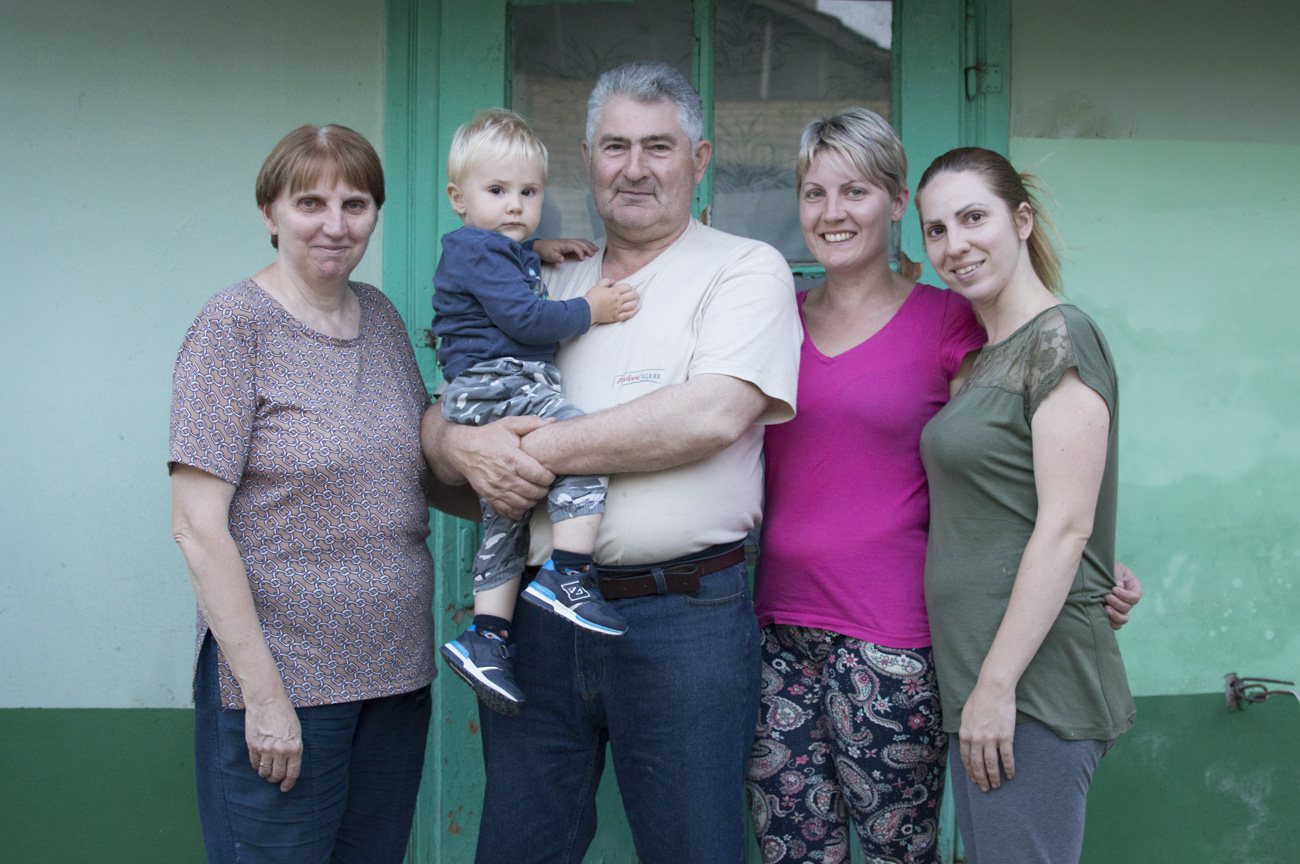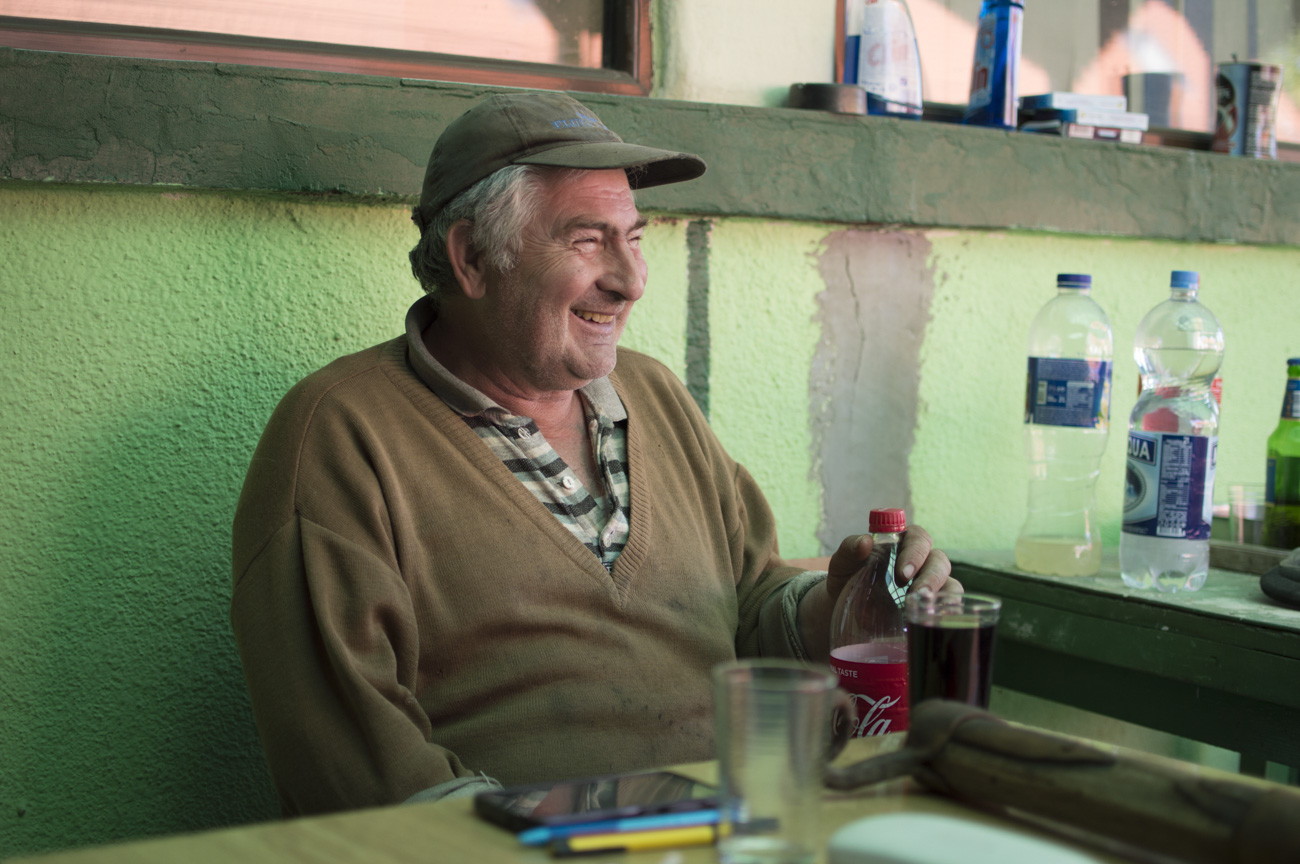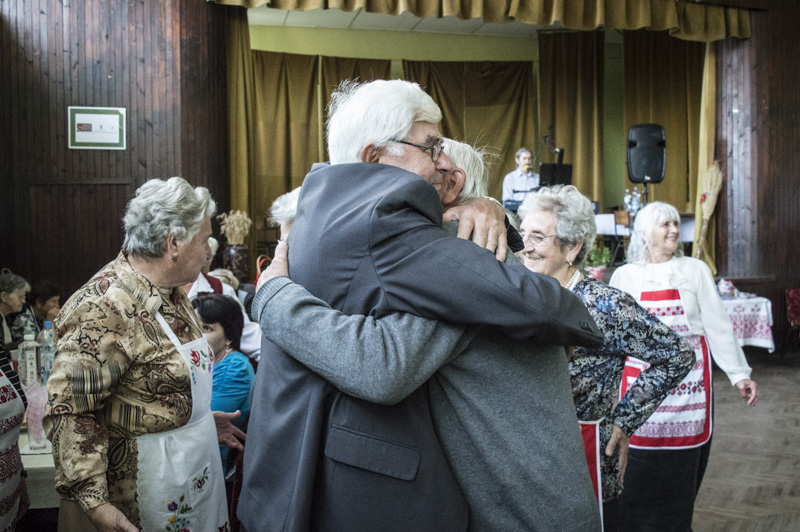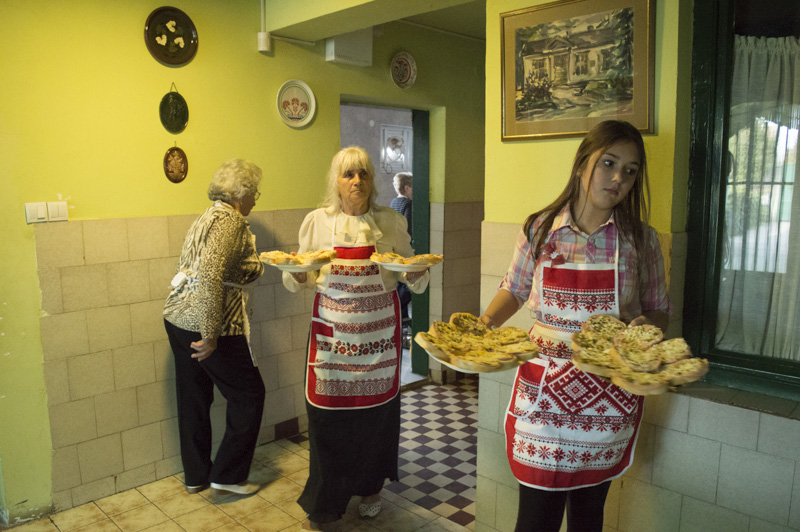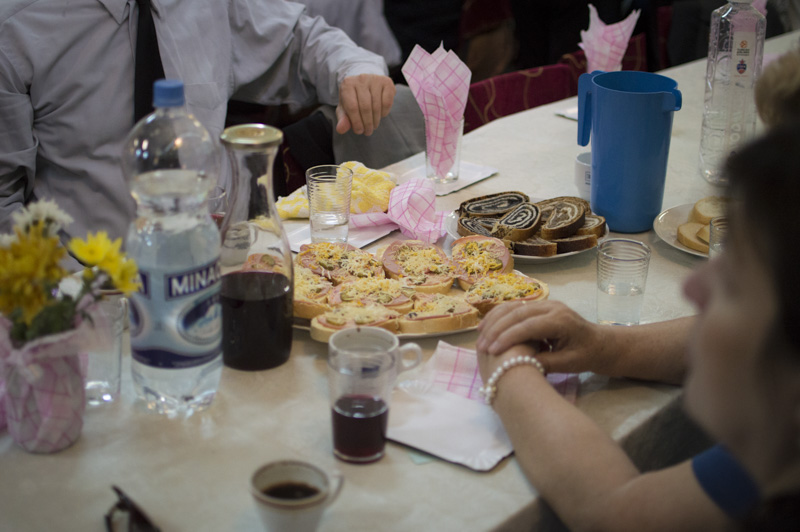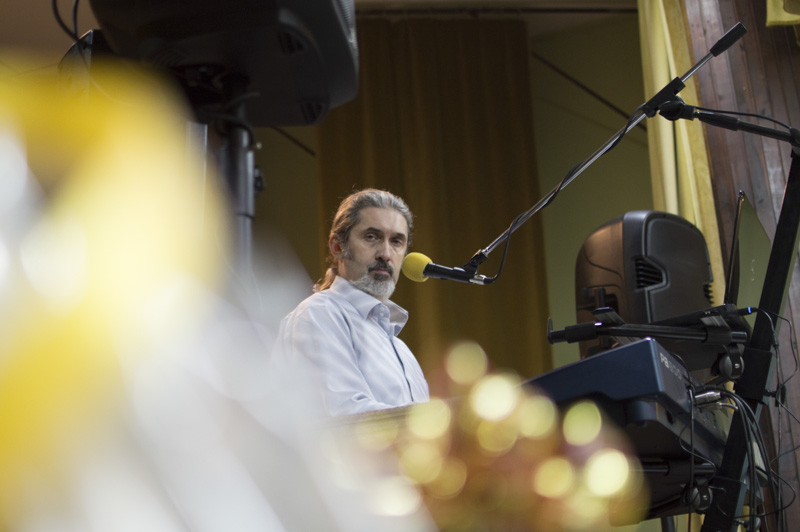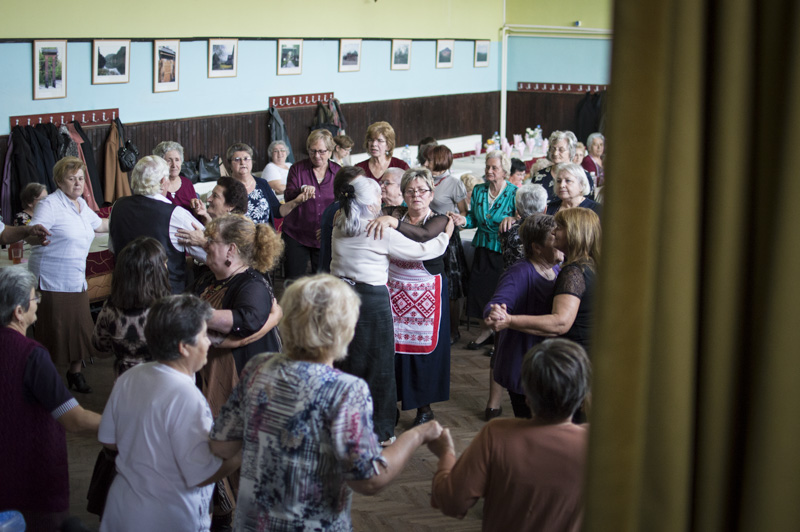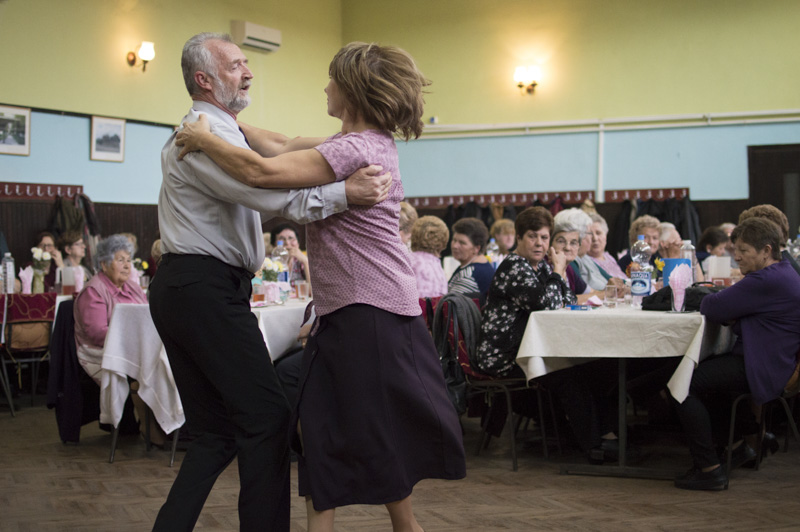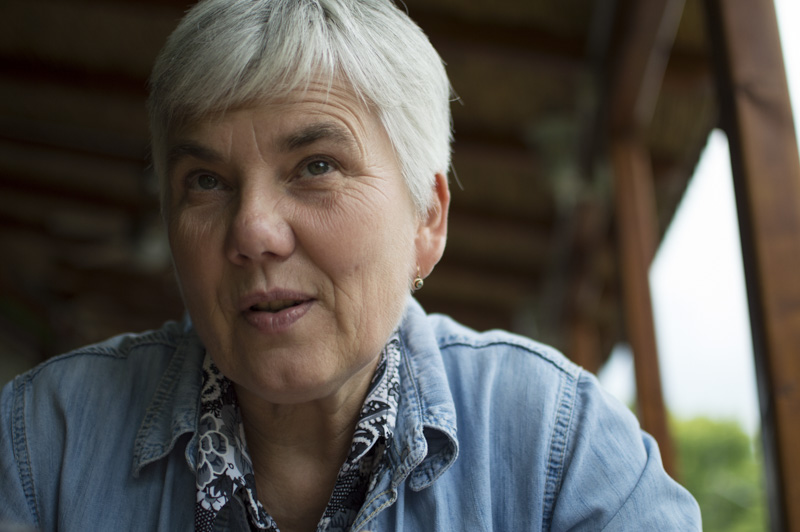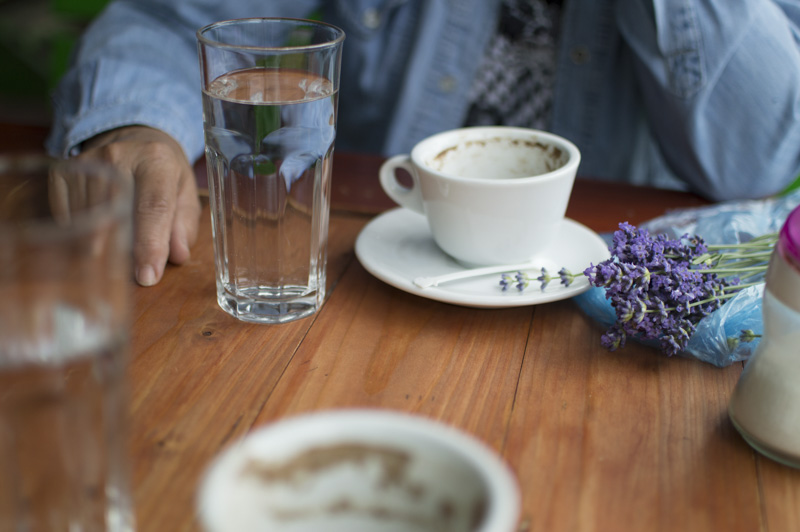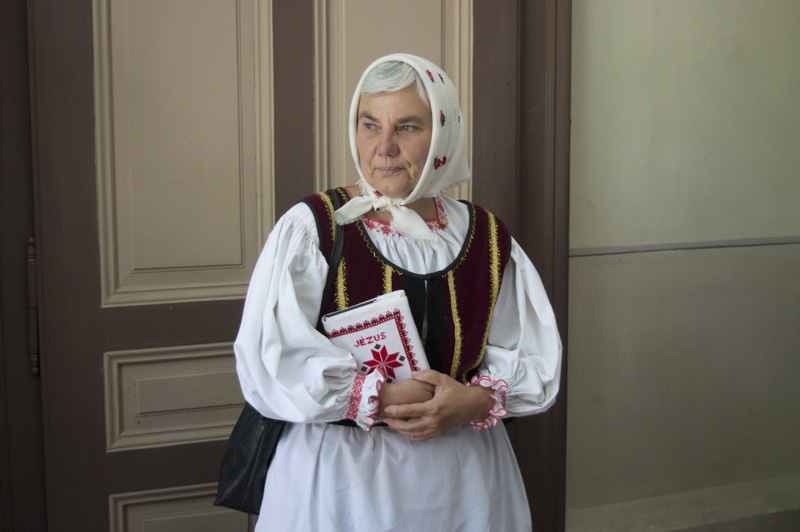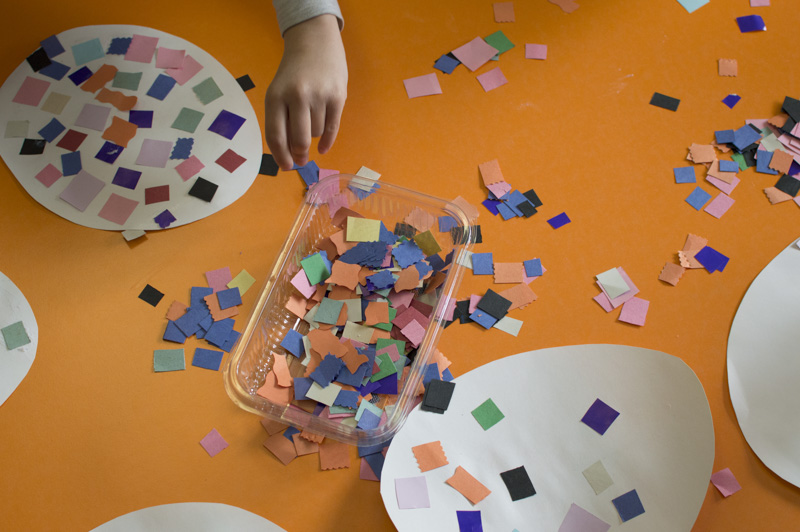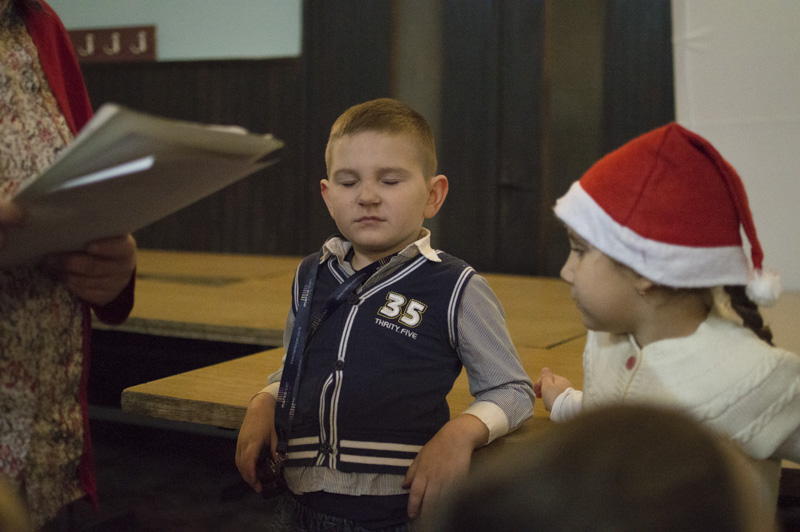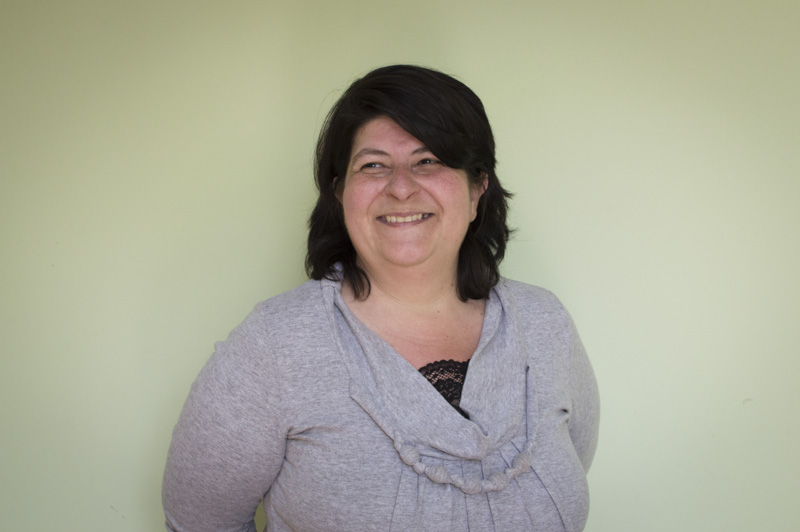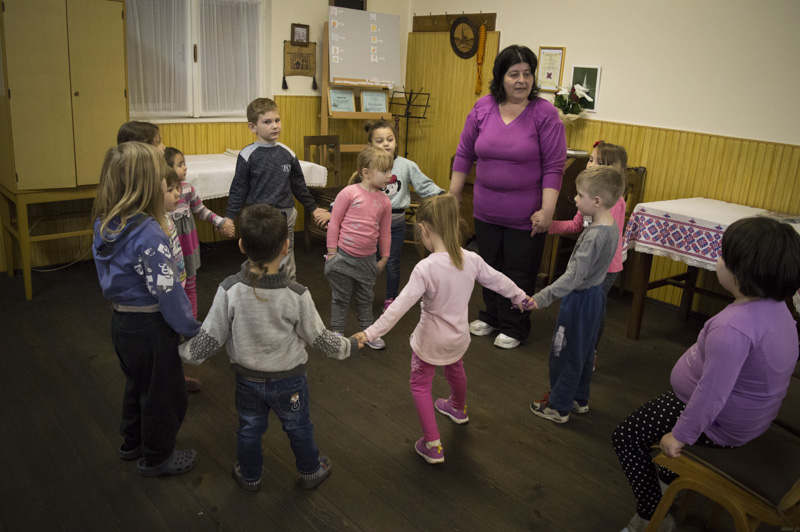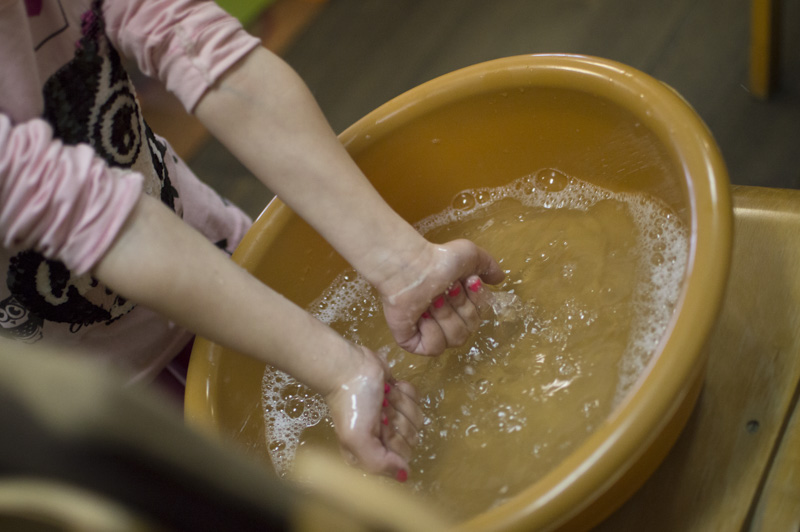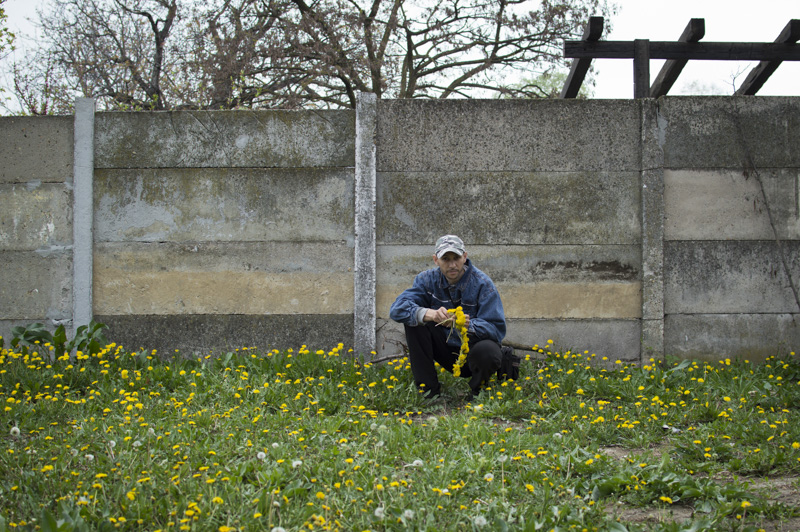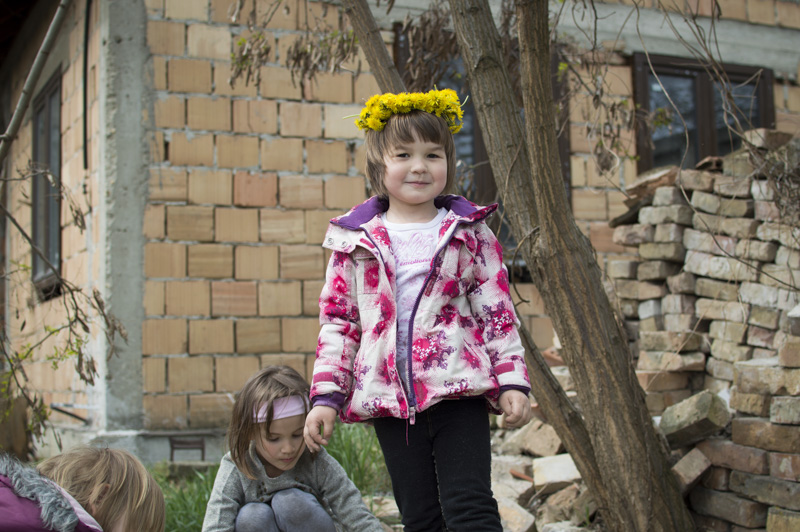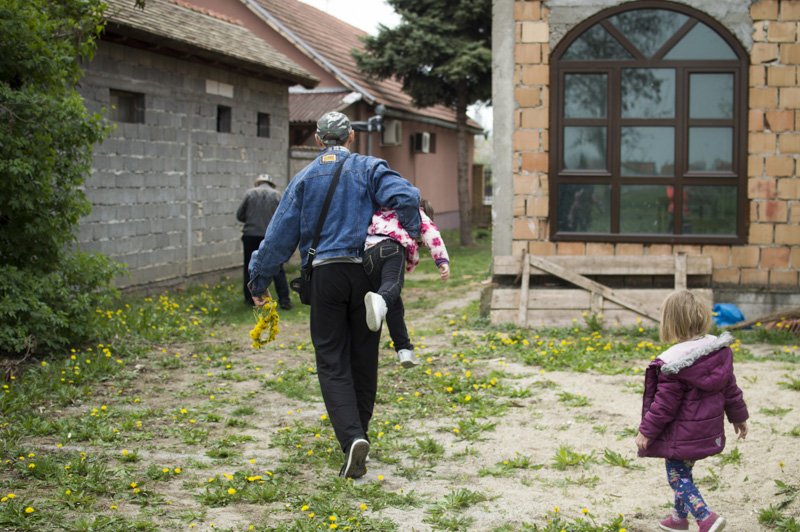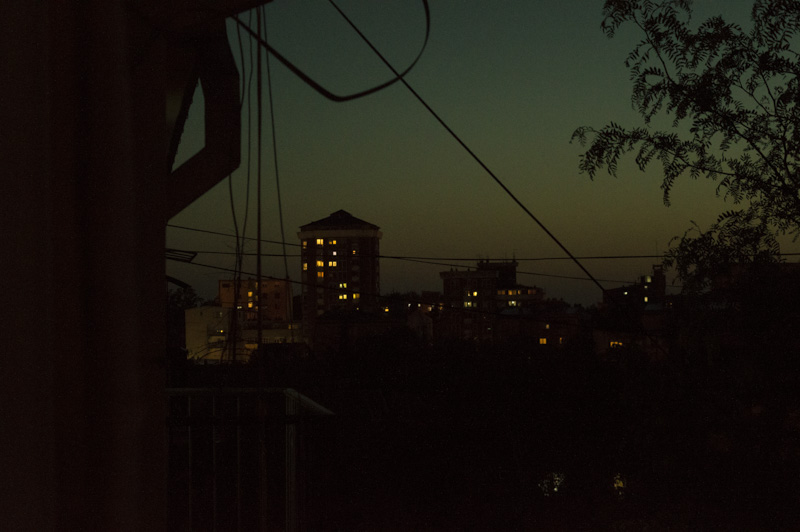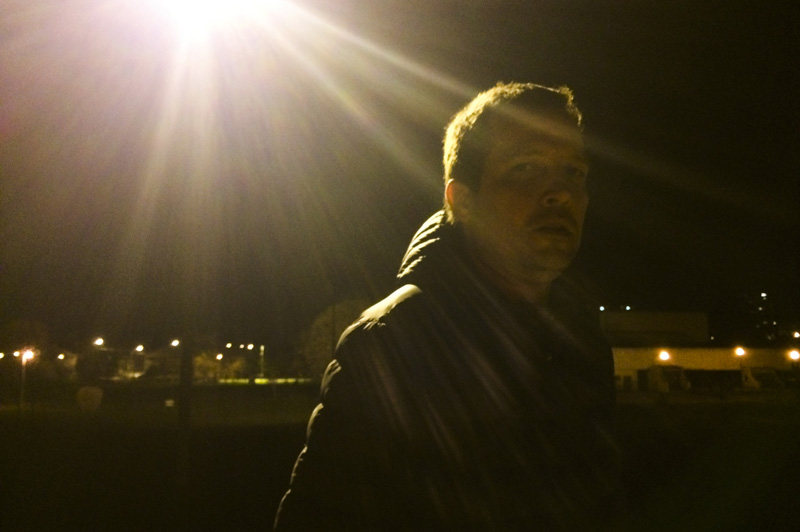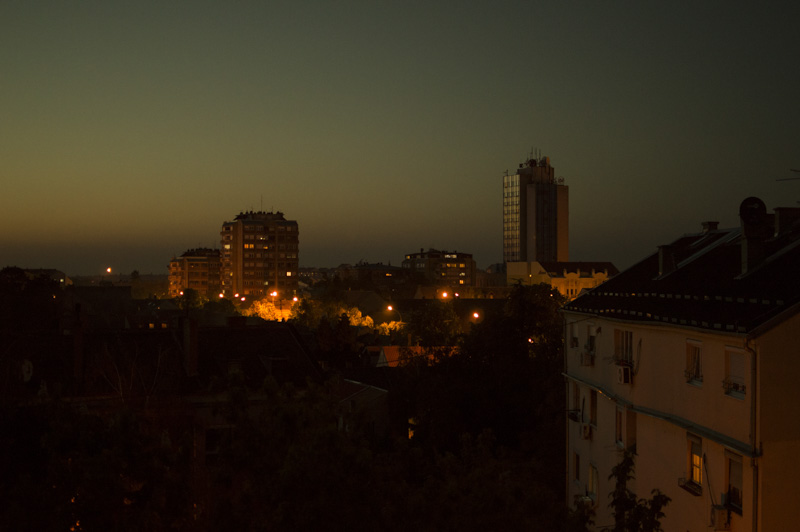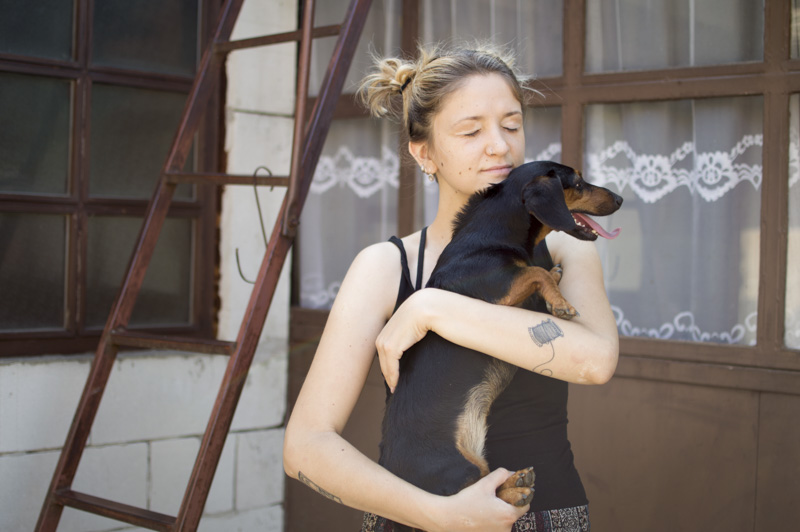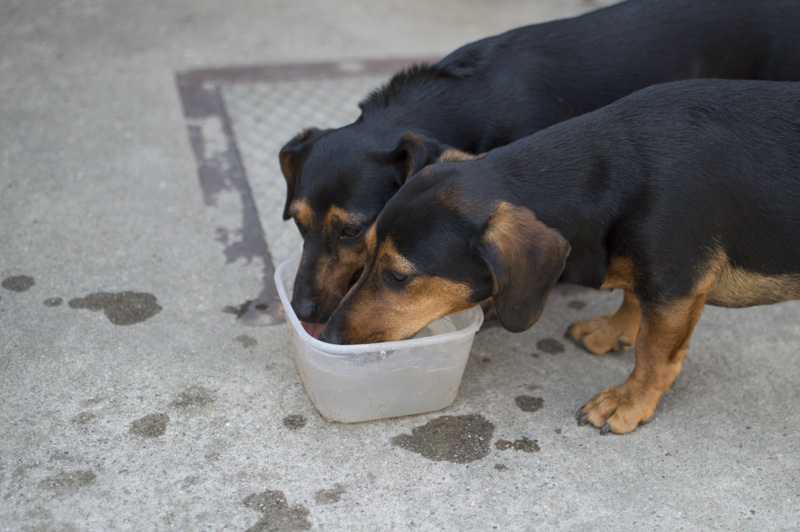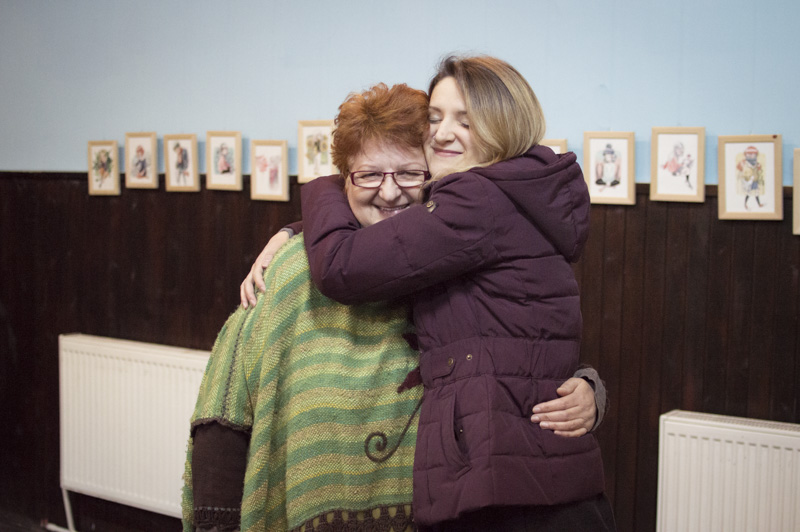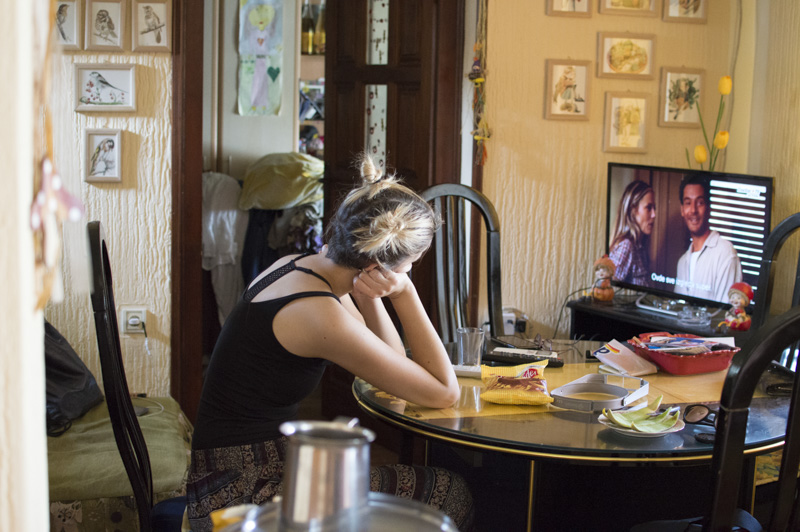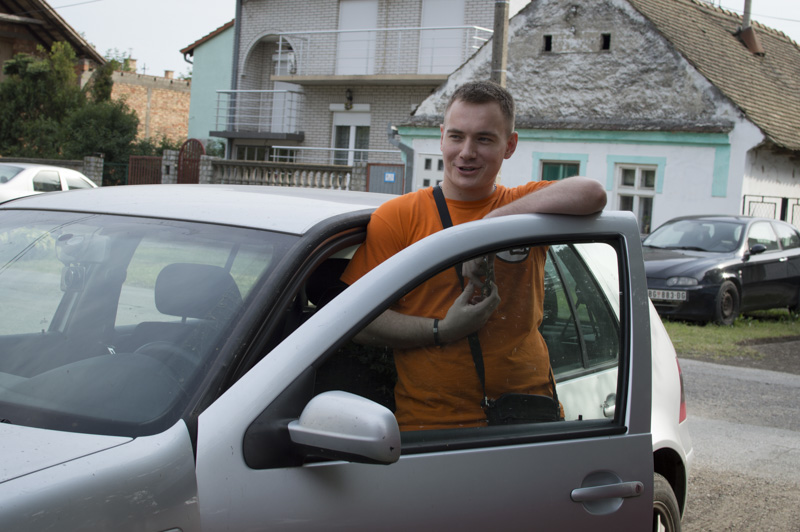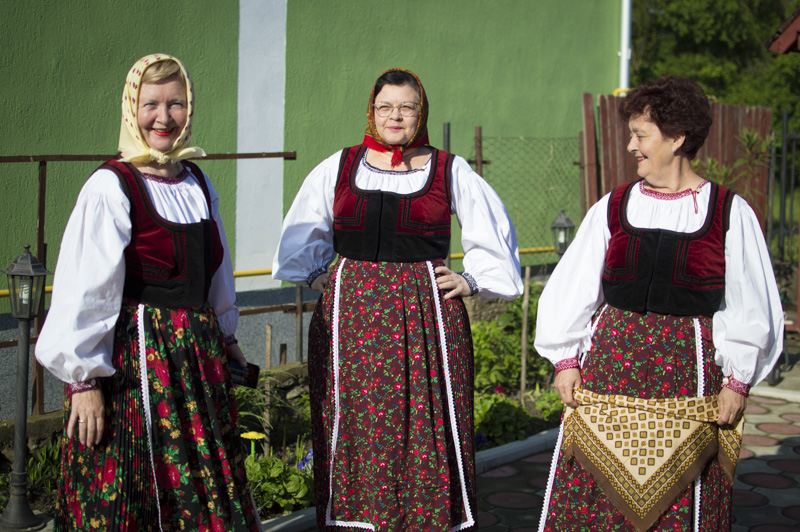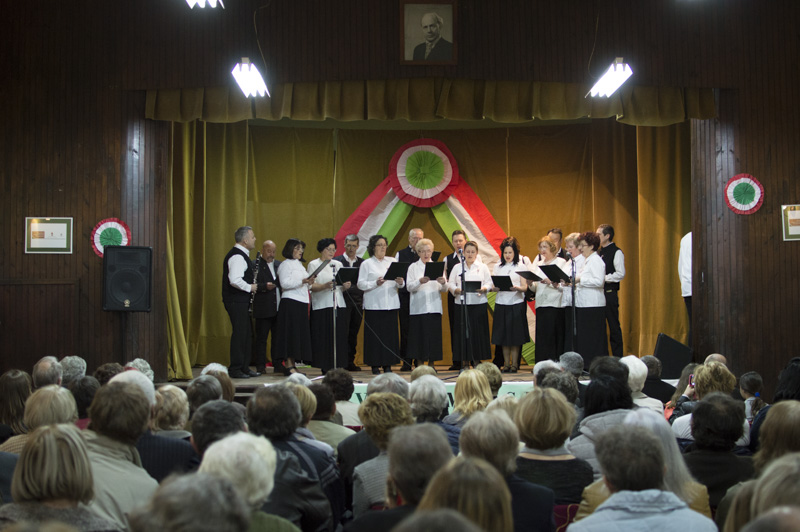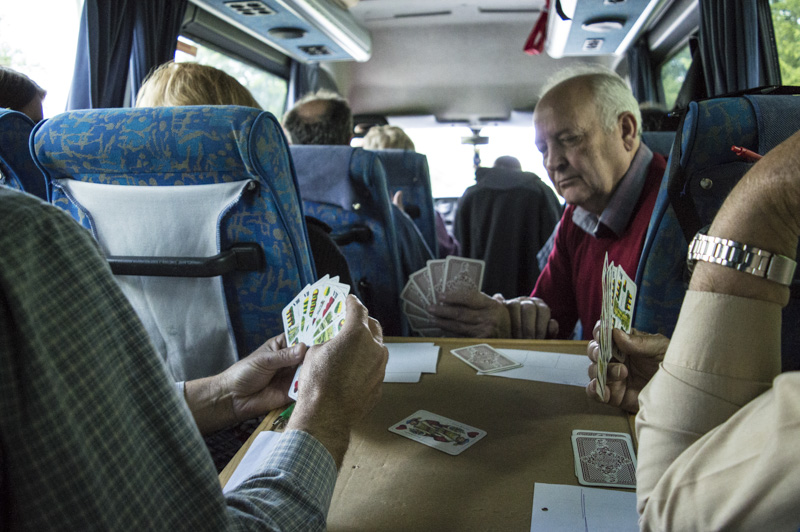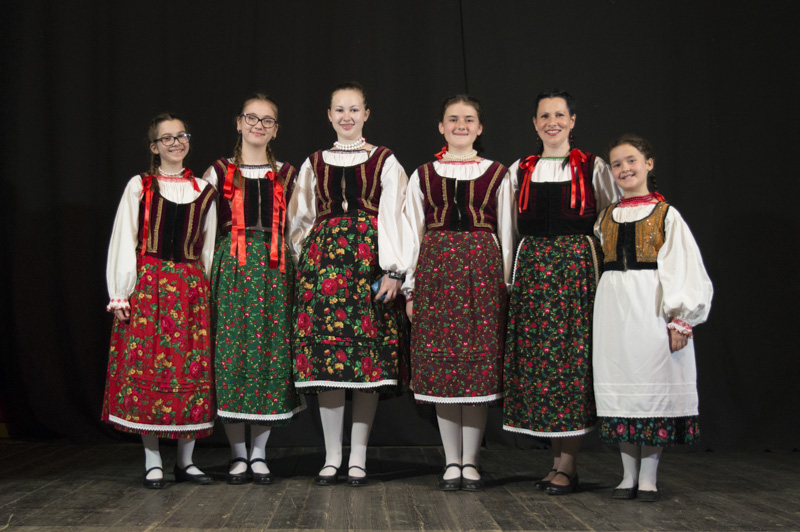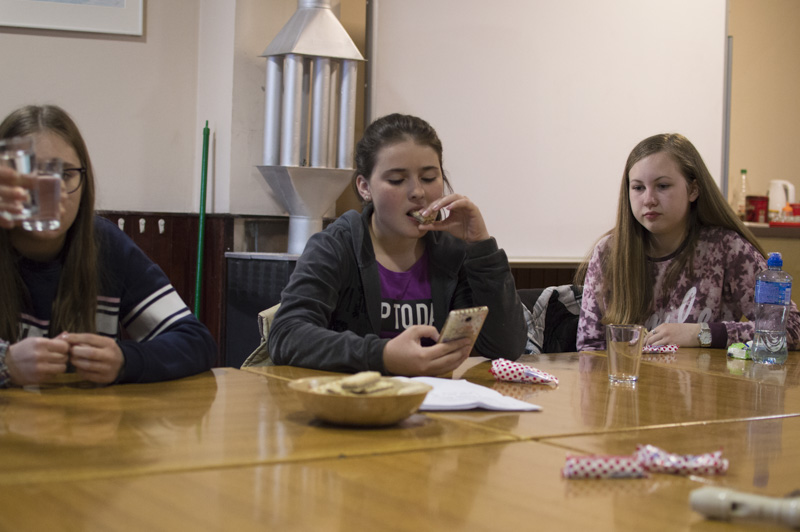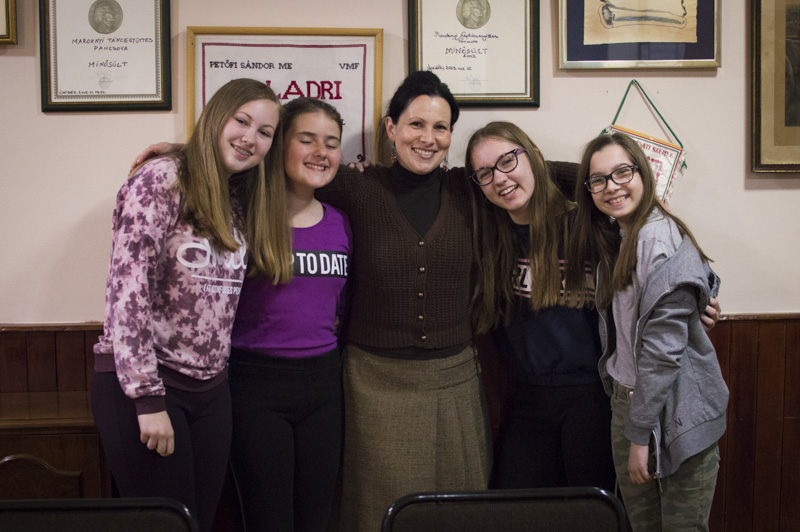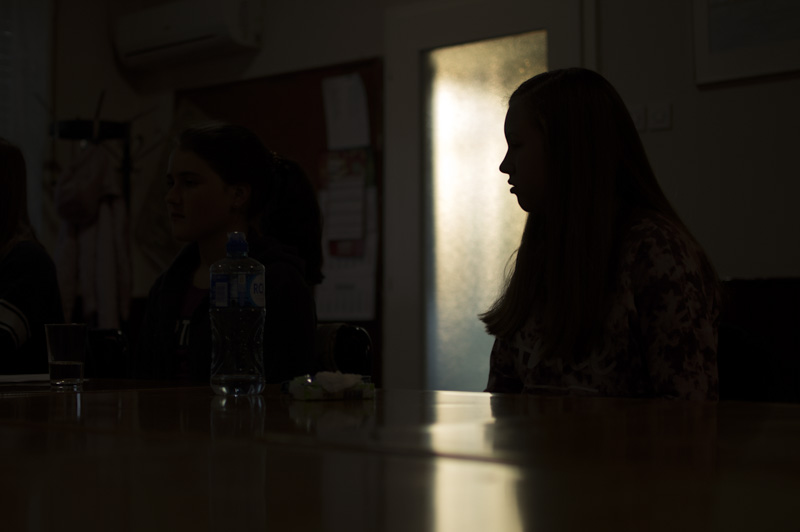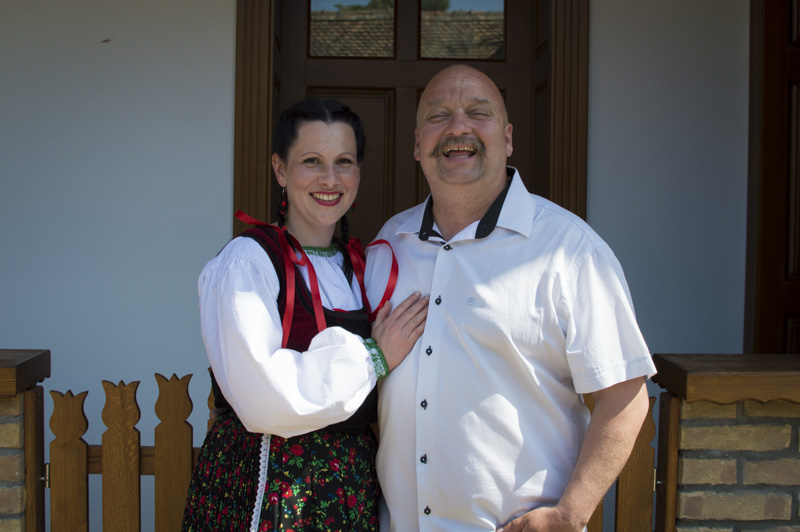Pančevo tales
Stories from a small Hungarian community living in the middle of Serbia
2019
The Hungarian minority in the multi-ethnic town of Pančevo belongs to a special tribe of Hungarians: the Székelys. They moved here from the region of Bukovina (today part of Romania and Ukraine) in the second half of the 19th century due to organized displacement of the population within the Austro-Hungarian Empire. Since then, they have managed to conserve their identity, their language, and their traditions, although their number is decreasing rapidly due to massive migration to the West and assimilation into the Serbian population.
The ones who stay here, stay here for a reason. Welcome to the world of multilingual families, often separated by borders crossed for financial reasons. Welcome to the world of traditional folk songs and dances kept alive in monumental cultural centres built in the communist era. The Székelys are known for their special way of thinking and their ability to face their problems with humor and irony, which has always guided them through the hardest times.

1/ Adapting quickly
When the Székelys arrived in the region their task was to drain the marshes and build embankments along the river Danube. In return for their work they got fields near Pančevo, so they settled down and joined the farming community of Vojlovica. After the Second World War the town changed significantly. Pančevo was turned into an industrial center with more than 30 factories. The biggest chemical factory in the whole Yugoslavia was constructed right at the end of the ’Hungarian street’ in Vojlovica. The most fertile fields were taken away from the families, so instead of farming, people started to work in the factories. The Székelys have always been good at adapting to the ever-changing circumstances. The next shift came with the breakup of Yugoslavia. „There is a saying that it’s not normal if someone is normal today in Serbia. – says uncle Toni, the cantor at the catholic church – After all that we have gone through in the ’90s, the bombing and everything… Those years left their marks on all of us.” By now most of the factories have been closed. Some families returned to farming, but the majority is trying to find a job somewhere else: Pančevo, Belgrade, Vienna, Germany, Sweden and Australia are among the most popular destinations.

2/ Masquerade
A masquerade is organized during the coldest winter days for the children of Vojlovica. That is the part of Pančevo where the Székelys originally settled down. Back then Vojlovica used to be a separate village with Slovakian and German inhabitants. Although the ethnic proportions have significantly changed, the „village“ has still preserved it’s rural atmosphere. The parents do their best every year to create the most imaginative costumes, while the grandmas fry the traditional carnival donuts. For a few hours the great hall of the cultural centre is full of excited children running around, playing games and waiting for the fashion show to start.

3/ Hungarian minutes
Pančevo is definitely a unique place: it is said that 26 different ethnic groups are living in the town. Of course not all of them, but the more organized ones have their own TV programme in the local television. ’Hungarian minutes’ reports on the most important on-goings of the Hungarian community in a 25-minute broadcast every week. When the programme was started it used to have a serious editorial team, but as the budget has been reduced over the years, only Zsuzsa and Ica stayed. Zsuzsa (otherwise the wife of the bishop and a PE teacher at school) is responsible for making reports and interviews, while Ica is compiling the programmes. When noone was willing anymore to edit the programme for such a low salary, Ica learned how to do video-editing. She was 52 then. „If we stop doing it now, there is no chance there will ever be a Hungarian broadcast again in TV Pančevo. If we ever stop it, I’m sure they won’t let us in again.”

4/ Beneath the surface
The Székelys respect their ancestors as they are aware of the story of their struggles. They left Bukovina because the families were very poor and they thought better conditions were waiting for them here. Well, that wasn’t the case actually – they didn’t really get what they were promised. The importance of keeping their traditions wasn’t always that obvious as it is today. In the early decades after the resettlement they rather tried to forget where they came from, because they were ashamed of it – they were ashamed how poor they had been in Bukovina, and didn’t want to talk about those times. However, in some layers beneath the surface those old songs, stories and recipes were yet preserved and passed on through generations up to now.

5/ The Lőcsei family
The Lőcsei family has been leading the Hungarian association in Vojlovica for more than 20 years. Ica is doing most of the administrative and organizational work, as Vilmos is busy working on the fields and taking care of the animals. They used to work in the same metal processing factory until it was closed in 2013. Then they returned to the family traditions of farming. Their two daughters basically grew up in the association, and now they are leading the children’s folk dance group. “I don’t really like traveling, I feel uncomfortable when I have to leave this street. I prefer inviting others to my house and having people around. Keeping things together. – says Ica – I would say the hardest part is taking the responsibility. There are a lot of great people in the association. They are willing to help in everything, but we are the ones who have to make the decisions. Sometimes I wish we could hand this over to someone else. But it’s not that easy... I feel that it’s our moral obligation to keep on.”

6/ Afternoon tea parties
‘Afternoon tea party’ is the official name of the regularly organized gatherings of the oldies. In every village there is at least one women’s association, which is usually called a needlework group. Once in a month all the groups from the area get together in one’s local cultural center to have some fun in the afternoon. Essential elements of all tea parties are live syntethizer music, non-stop dancing, pálinka (strong homemade spirit), turkish coffee, sweetened tea, homemade pastries, presents for the hosting group and finally but most importantly: raffle. The prizes vary from time to time but they are mostly practical goods for the household, such as dishwasher sponges, dishtowels, basic food products or potted flowers. Strong communities are being sustained here, reminding us the times when these huge theater halls were the fundamental venues of social and cultural life.

7/ Erzsike
Erzsike is the leader and representative of the needlework group in Vojlovica. Otherwise she is working as a cleaning woman for a less than 200 euros salary. Fortunately her daughter can support her from Sweden. Usually she spends the summer holidays there with her grandchildren. With her excellent diplomatic sense and confident behavior she is able to sooth the conflicts between the old ladies and keep them together as one group. Where does she draw the strength from? „It happened 7 years ago – she starts telling me – when I realized that my man has never loved me. He only married me because I was pregnant. I loved him so much over all these years that I never noticed how mean he was. Then I saw him cheating on me. Well, we did not divorce, but I started to hate men – all men – so much. But you know what? I cannot tell you how calm I am now. I have always been close to God, but now we are indeed good friends. I wouldn’t give away this peace inside me for nothing in the world.”

8/ Hajni and the kindergarten
Besides the cultural associations, the church also has an important role in keeping together the minority communities. The chapel room of the reformed church in Vojlovica functions as a Hungarian kindergarten every morning on weekdays. The aim would be to encourage the kids to use the Hungarian language and to teach them games, songs and customs in Hungarian. However, it’s not that easy as the kids are usually from mixed marriages and some of them doesn’t even understand Hungarian. Hajni, the kindergarten teacher can be loud and a bit strict, but she is always really kind to the kids. She likes working here and usually she cannot wait for the holidays to finish. „I’m like that, I cannot just sit at home. I miss these kids so much. Even those ones who cry all day, and even those who can’t use the toilet alone. I really wish our kindergarten building was finished finally. I have so many plans for the future!”

9/ Dorotea
Dejan after his night shift in the bakery comes to pick up his daughter in the kindergarten. He is especially tired since his wife is lying at home with a broken leg. Both of them were born in Vojlovica, Dejan in a Slovakian family and his wife in a Hungarian one. Their little girl, Dorotea starts a sentence in Hungarian and finishes it in Serbian without noticing any difference. “They were making this child with a grin on their face!” – says Hajni, the kindergarten teacher as Dorotea brings the full-hearted cheerfulness and positivity of the family every morning to the nursery.

10/ Adam
After Adam finishes his nine-to-five job he gets into his car to do some private work in the evening. He has been to the tallest buildings in town since he’s installing and repairing air conditioners. Adam was born into a trilingual family where both parents payed special attention to teach their children their native language. He uses Hungarian, Slovakian and Serbian language on a daily basis ever since he’s started to speak. However, the most important thing is what his grandma taught him: “Always look closely into people’s eyes, that’s what she kept telling me.”

11/ Lea
Lea misses her mum and her dogs so much, since she’s moved to the town and left behind her tiny yet warm and cosy room in Vojlovica. That’s where she started drawing as a kid, and never stopped it since then. Together with her boyfriend, Lali, they are considering moving even further and joining Lali’s brother (and many-many others from the Balkans) in Germany. They are both working as freelancers – Lea is drawing illustrations and Lali is a programmer – so finding a job there shouldn’t be a problem. But before making the big decision an adventure is waiting for Lea: she will spend one month in Canada together with her mum visiting relatives. „If only we could bring the dogs with us!” – they say looking at each other with a sigh.

12/ The choir
The members of the choir travel a lot to perform their folk songs in various competitions. Although there are no more Székelys living in Bukovina today, Pančevo is not the only place where they can be found. The majority of them lives in certain parts of Hungary and Transylvania (Romania). Wherever the Székelys live, they keep their traditions – the same folk songs, dances, costumes and dialect can be found everywhere – and they regularly organize meetings and celebrations together. The sisters are among the most cheerful ladies in the choir. „The most important thing – says aunt Zsuzsi –is that you should find something in your life that lifts you up. Something that recharges you from time to time.” „Because life is not always that easy – continues her sister, Annus –You need to stay strong to keep the family together. You really need to learn to love, and you have to give a lot of love to others. Sometimes you get some of it back, but don’t be surprised if it rarely happens. Singing is what recharges us.”

13/ Mária
Mária used to learn solo singing at the renowned music school of Pančevo. She enjoyed it a lot, but when the kids came she stayed at home and stopped singing for many years. Luckily, a year ago she met a folk singer from Hungary, who encouraged her to start practicing again and not to waste her talent. Now she is performing in the folk band of Vojlovica together with her husband, Oszkár, who is playing the contrabass, after finishing his shift at the chemical factory. Mária is a really friendly woman, always full of joy, especially when it comes to singing and getting together with other artists. „I just wish I could get more days off at work – she says. –I would love to practice more with the girls.” Since a few months she has been passing on the folk song traditions of her ancestors to the younger generation: with five young girls form Vojlovica they have formed the ’Pántlika’ choir.






